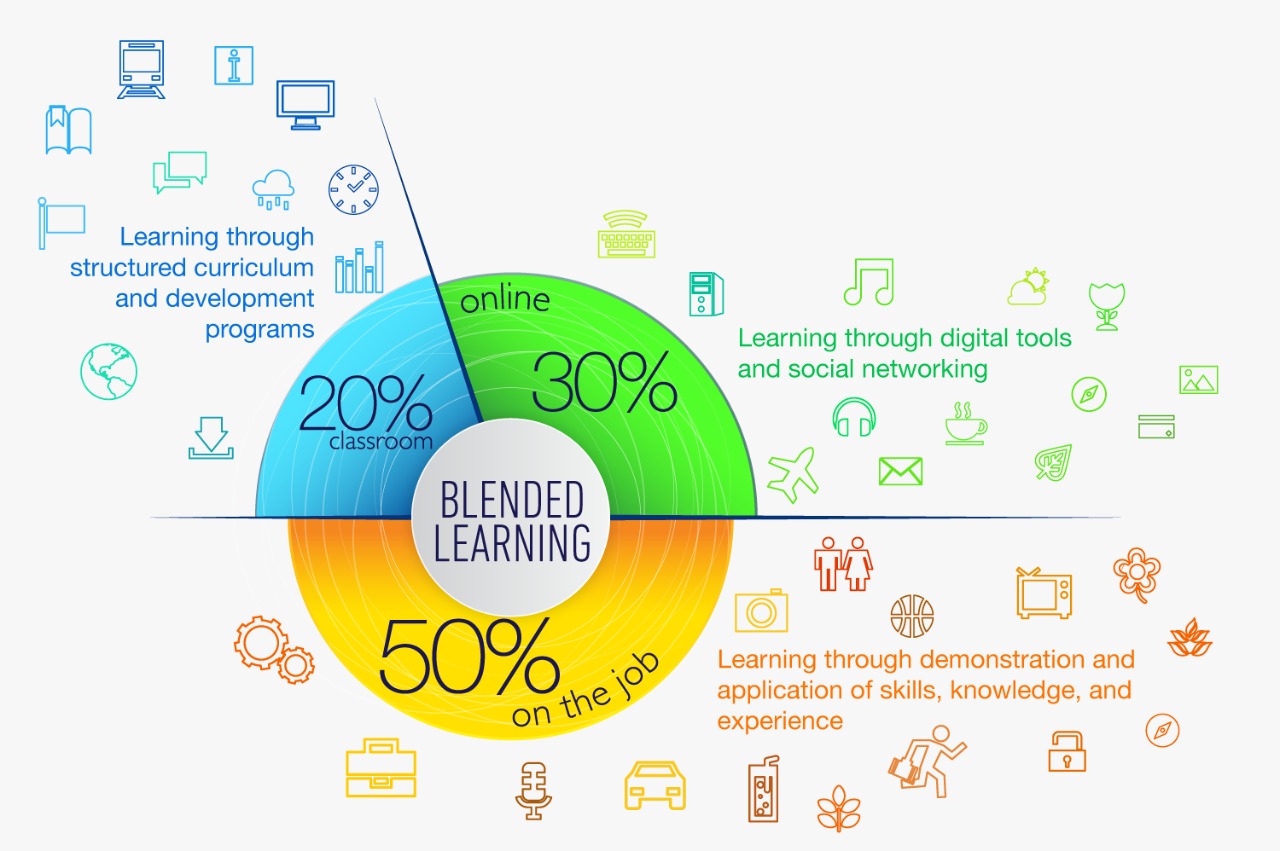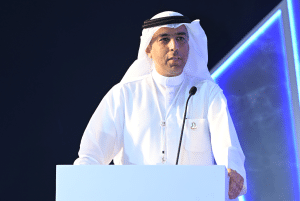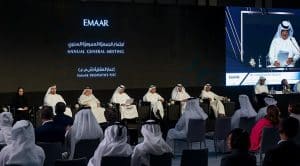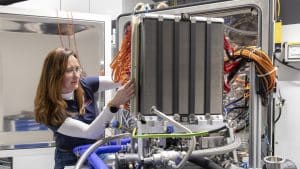by Najwa Makhlouf, General Manager – Centre of Cleaning Excellence, EFS Facilities Services Group
Whilst the definition of “blended learning” is hard to establish; it has been described, briefly, as an educational approach that grants learners the flexibility of learning remotely while interacting with instructors on a face-to-face basis. It is a prevalent approach used for successful educational experiences forming the basis of organizational development programs.

At EFS, we continually evolve through the passion for learning and development. We strive for excellence, and we make it happen. Our learning model is anchored around a 20:50:30 blended approach, where 20% is based on instructional, 50% on-the-job and 30% self or online learning.
Each learning approach comprises a full-fledged course syllabus determined by the job role requirements, core values of the organization, and a set of relevant competencies critical for the successful performance of a given task.
This learning journey is complemented by various tools and mechanisms ranging from storytelling, tutorial videos, case studies to group learning, and more. EFS caters to the needs of learning and development at every stage of the employee lifecycle that supports the learners to analyze the instructional materials better and suit varied styles and preferences of learning.
Mr. Tariq Chauhan, Group CEO at EFS Facilities Services Group, said: “For the success of L&D, the organization needs to embed professional development as a critical pillar in its mainstream organization where all leadership levels are engaged. It then has to build systems and tools to identify and assess employees through the state-of-the-art performance management systems that outline L&D outcomes.”
EFS prides itself in having adequate and skilled subject-matter experts who sculpt the instructional modules in-house to empower the workforce while retaining the organization’s most talented individuals. Two key indicators then measure learning: formative assessments, summative assessments during and after completion of the course to evaluate the effectiveness of the training, continuously improve learners’ performance, and ensure positive impact within the workplace environment.
EFS further lays the foundation for addressing this shift in skills demand by work automation through process optimization, reducing redundancies of staff through upskilling in new technologies, and strengthening the progression of existing employees through upskilling.
EFS realizes the need for technology to continuously evolve the learning paradigm making it more flexible, powerful, and customized as per learners’ needs and preferences. EFS is ready to reshape its educational approach to meet our learners’ digital and progression needs.












